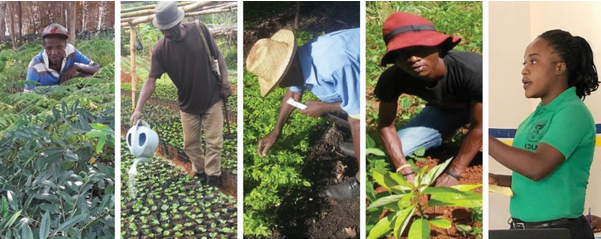
With coverage of the current national lockdown in Haiti focused mainly on cities, I wanted to share the viewpoint of three farmers and two agronomy students regarding the crisis and what they think about the future. Four of the five were interviewed within the last few days by agronomists from the Smallholder Farmers Alliance (SFA), while the fifth draws on a previous interview because her cellphone has not been answering (and may well not be charged because of the lack of regular power throughout the country). All five of those interviewed are affiliated with the SFA and our partners.
 |
When asked about how he is coping with this situation, Jules explained, “Every time an SFA agronomist can’t make it through because of peyi lòk,” which means “operation lockdown” and is how many refer to the current crisis, “I take over as best I can because being better farmers is how we will survive.”
 |
Jeansius Morancy(49) and his wife and six children live on a small farm near the rural community of Leger. He also has a part-time job managing an SFA tree nursery. “The best thing I can do right now is to make sure these trees are growing well,” said Jeansius as he took a break from his immaculately tended nursery, “so when things become normal again, we can transplant the trees.” He went on to explain that for the last month SFA agronomists have sometimes not been able to make site visits, but proudly noted, “All the farmers who volunteer in the nursery have not missed even one day to peyi lòk.”
 |
 |
Earlier this year Desilus earned a degree in agronomy from a university in Port-au-Prince, and a few months ago returned to serve as an SFA intern in his home community. “I am excited to help the SFA agronomists train the farmers to improve their agriculture and get higher yields,” he said, “and even though we are cut off now in Leger, it is much worse for my school friends back in Port-au-Prince.”
 |
Let me end with this thought. Once you leave the cities, Haiti is a country of smallholder farmers and their fate is inextricably linked with the fate of the nation.
|
|